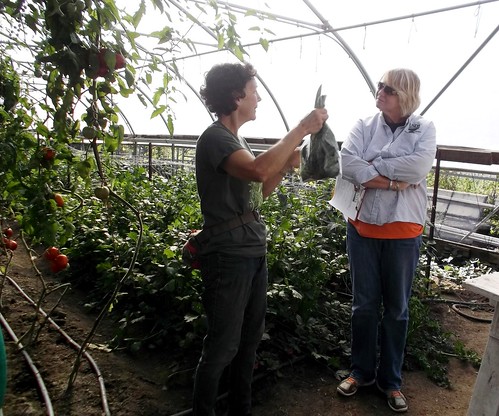
In the produce industry, food safety is front and center on everyone’s mind. The Food and Drug Administration (FDA) recently released some of the Food Safety Modernization Act (FSMA) final rules, and retailers are looking to buy from FSMA-compliant suppliers. If you’re a retailer or large produce buyer, there is exciting news about a program that verifies that suppliers are meeting your food safety requirements. After three years of successful trials, USDA recently previewed our plans to expand the GroupGap Pilot Program.
Many producers are aware of “Good Agricultural Practices,” or GAP audits. The USDA’s Agricultural Marketing Service (AMS) Specialty Crops Inspection Division (SCI) performs GAP audits, which are voluntary, third-party services that verify that farms are following industry-recognized food safety practices and recommendations from the Food and Drug Administration (FDA).
Later this year, USDA will officially announce the new GroupGAP Program, which enables growers to collectively address food safety concerns and become certified as a group. The program’s systematic approach to food safety includes several components that will increase retailers’ confidence in growers’ products.
The pilot projects were completed with support from AMS’ Transportation and Marketing Program and our partners at the Wallace Center at Winrock International. Small growers in the pilot program developed robust food safety systems. This included working with food hubs and other grower groups to pool their resources to establish food safety best practices, lead food safety trainings, develop quality management systems, and pay for certification costs. In addition to regular audits from USDA inspectors, the groups also performed their own internal food safety inspections of their growers.
The pilot participants demonstrated an overall commitment to develop a culture of food safety and quality within the grower community. All of this was accomplished using a transparent process.
The new GroupGAP Program will continue this momentum, creating new opportunities for the retailer community and the entire supply chain. Expanding the number of GAP-certified small farmers will help retailers meet the increasing demand for locally-sourced food. With the GAP Program set to be adjusted to support FSMA rules, retailers can be assured that their suppliers are FSMA-compliant. The program expansion could also increase the total number of growers in the supply chain who are GAP-certified, a win for the entire industry and American consumers.
AMS will share more details about the GroupGAP Program at the Oct. 23-25 Produce Marketing Association (PMA) Fresh Summit meeting in Atlanta, Ga. We look forward to meeting with many of our nation’s retailers and large buyers to discuss how this program can work for them as we roll it out to more growers. If you are attending the PMA Fresh Summit, we encourage you to visit booth #259 for more information about GroupGAP and to hear the other ways AMS supports the produce industry.

